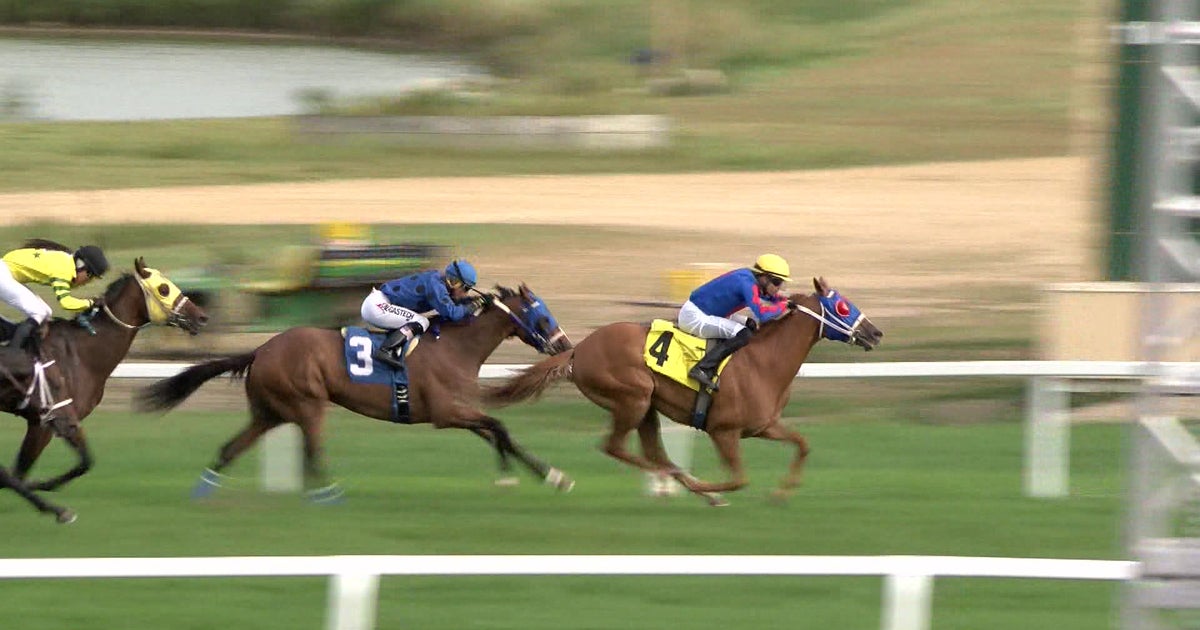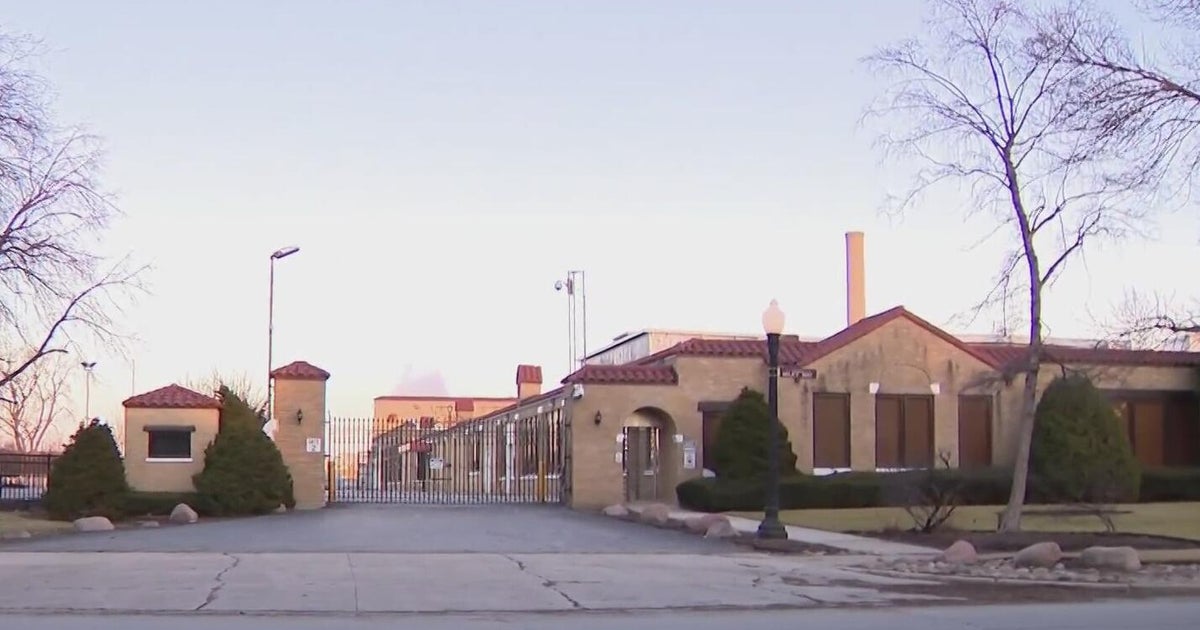Hartnett: 2013 Brings Uncertainty For Aging Yankees
'Hart of the Order'
By Sean Hartnett
» More Columns
George Steinbrenner III loved his horses. He and his thoroughbred advisers knew when an old horse needed to be removed from the fast-paced competition of the track and be set free on the 750 acres of land at his Kinsman Stud Farm in Ocala, Florida.
"The Boss" isn't with us anymore. While his domineering style of ownership caused its share of triumphs and failures, he undoubtedly gave the Yankees a firm sense of direction. That direction was always a never-ending quest to provide the fans in the Bronx and the greater Yankees' universe with the most-talented assemblage of ballplayers that could be found thanks to the Yankees' excess of financial riches.
Times have changed. Commissioner Bud Selig evened the financial playing field by instituting a threshold luxury tax of $178 million from 2011-to-2013. Starting in 2014, that number will change to $189 million. The measure took direct aim at the Yankees who locked themselves into various long-term contracts with some of the biggest name free agent stars.
Over the past few seasons, the Yankees have made it obvious to the baseball world that they're changing course by refusing to sign players to expensive long-term pacts. They've learned their lesson from the albatross contract they handed Alex Rodriguez in 2008 and the mega-deal they signed Mark Teixeira to in 2009.
The ghost of A.J. Burnett continues to hover over the Yankees as a painful reminder of their over-eagerness to open the wallet. Even though Burnett is entering his second year in Pittsburgh, the Yankees are still on the hook to pay Burnett $8.5 million of his $16.5 million 2013 salary to pitch for another team.
While the Yankees are in the process of eliminating future luxury tax fees in excess $18 million, they've continued their philosophy of relying on aging ballplayers. With six key players (Rivera, Pettitte, Ichiro, Jeter, A-Rod, Kuroda) over the age of 37 and averaging a combined age of 39, perhaps the Yankees staking their 2013 chances on one too many "old horses."
Pitching Won't Be The Problem For The Yanks In 2013
The Yankees' rotation is their biggest strength. CC Sabathia, Hiroki Kuroda, Phil Hughes, Andy Pettitte and David Phelps/Ivan Nova sounds like a logical five-man rotation for the Bombers in 2013. Nova and Phelps will compete for the fifth spot and Michael Pineda is pushing for a mid-season return. If I'm a betting man, I imagine Phelps claiming the final spot in the rotation.
Pitching was not the reason why the Yankees fizzled in October. Their rotation is capable of going head-to-head with the Toronto Blue Jays' stout staff of R.A. Dickey, Josh Johnson, Mark Buehrle, Ricky Romero and Brandon Morrow for best in the AL East with the Tampa Bay Rays being a close third.
The Yankees' pitching staff as a whole will not be a major issue for the Yankees in 2013. They have the depth needed to cope with age and potential injuries. Even with Rafael Soriano opting out of his contract and the question mark of Mariano Rivera's ability after suffering a torn ACL, the Yankees' bullpen is blessed with solid depth. Should Rivera suddenly lose his ability in 2013, David Robertson can slide into the closer's role and Joba Chamberlain, Clay Rapada, David Aardsma, Cody Eppley, Boone Logan and the Nova/Phelps rotation battle loser gives the Yankees plenty of arms to fill out the bullpen.
Pitching won't be the problem, but there are a ton of major concerns for the aging Yankees heading into 2013 and beyond.
Yankees Lacking Right-Handed Thumpers
Obviously, losing Alex Rodriguez until a best case scenario of mid-season damages the Yankees' power from the right side of the plate. On two bad hips, we don't know what kind of player A-Rod will be going forward with five years remaining on his current deal.
I was surprised not to see the Yankees target Cody Ross to beef up their right-handed power. Ross eventually signed a three-year contract worth $26 million dollars with the Arizona Diamondbacks. The Yankees understandably balked at offering Torii Hunter a guaranteed two-year contract, but Hunter would have undoubtedly filled the Bombers' need for a legitimate power threat from the right side of the plate.
35-year-old right-handed hitting corner outfielder Matt Diaz was recently signed to a minor league deal. While Diaz could prove to be a bargain part-time player, it doesn't fill fans with belief that their organization has done enough to address their right-handed power woes and that includes the curious addition of Kevin Youkilis.
Is Youkilis Worth An Expensive One-Year Rental?
With A-Rod out of the picture for at least half of 2013, the Yankees settled on taking a one-year gamble on former "Red Sox Nation" favorite Kevin Youkilis. It took a whopping $12 million to bring "The Youker" to the Bronx. The last time Youkilis batted above .258 was in 2010. Noted for his famous ability to draw walks, Youkilis' OBP has fallen from .411 – to .373 – to .336 over the past three seasons.
Although his power is consistent, it isn't overwhelming. Youkilis is a near-certainty to hit between 17 and 20 home runs in 2013. The most glaring weakness of signing Youkilis is his suspect range at third base. He's not a Gold Glover winner these days and made 20 errors in 111 games at third base in 2012.
The Yankees desperately needed to acquire third baseman who can compensate for 38-year-old Derek Jeter's declining range, especially with Jeter returning from a fractured ankle.
Brian Cashman has maintained publicly that Eduardo Nunez's future is a shortstop. Having Nunez learn on the fly and Youkilis at the hot corner doesn't seem like a sound defensive plan for 2013, although utility-man Jayson Nix cleared waivers and brings solid, capable defense at shortstop.
One would never question Youkilis' mentality. He's a genuine "gamer" and fits the mold of past "never say die" Yankee teams of the mid-to-late 1990's. It remains to be seen whether Youkilis can break free of the downward trend his career appears to be taking.
Despite a poor postseason performance, the Yankees should have forced Eric Chavez to seriously weigh the pros and cons of one more go-around in the Bronx versus ideal location. Chavez agreed a one-year deal worth $3 million to join the Diamondbacks whose home stadium of Chase Field is roughly 15 miles from his Paradise Valley, Arizona home.
It's worth wondering why Cashman didn't dangle a one-year, $5 million offer in front of Chavez. He gave the Yankees outstanding offensive production in 2012 and continues to be a steady fielder at 35. In just 245 at-bats against right-handed pitching, Chavez socked an impressive 16 home runs. He doesn't give you any value against lefties, but a platoon of Chavez-Nunez at third base seemed the most logical and financially-wise option for the Yankees in 2013.
Is Two Years Too Many For Ichiro?
Ichiro fit comfortably in pinstripes, as he enjoyed a resurgence after trading a gloomy future with the Seattle Mariners for the excitement the AL East race and playoff baseball. The question is – was his small sample in pinstripes a mirage, or does Ichiro have a lot to offer the Yankees over the next two seasons?
$6.5 million for 2013 and 2014 will not hamstring the Yankees' payroll, but it's hard to understand why a guaranteed two-year deal was a necessity for an outfielder who will be 41 when his contract expires. The Yankees have pretty much hitched their wagon to hope of Ichiro remaining a reliable player both in the field and at the plate for two more seasons.
Why Are The Yankees Holding On To Granderson?
The Yankees are in a no-win situation with Curtis Granderson. Perhaps, trading Granderson during the winter meetings for a dependable third baseman or catcher would have been the best time to get value in return for the upcoming free agent. It seems that Cashman is perfectly content with bringing Granderson back in 2013 and crossing his fingers that Granderson improves upon a brutal .319 OBP and an all-time franchise record of 195 strikeouts in a single-season.
With A-Rod out and Jeter rushing to play the field as the 2013 season dawns, it was surprising to see the Yankees not kicking the tires on the Texas Rangers' demands for Michael Young. Eventually, Young was dealt to the Philadelphia Phillies, but his career statistics in the plate and in the field compare favorably to Jeter. He hasn't played shortstop consistently in recent seasons, but Young has familiarity both at the hot corner and shortstop.
As it became clearer that Josh Hamilton would ditch Texas for Anaheim, it would've made sense for Cashman to approach the Rangers about swapping Granderson for Young as the Rangers are still searching for left-handed power. Granderson could have adequately filled the void left by Hamilton.
Unless Cashman decides to showcase Granderson in spring training with the hope of getting a rival GM hot and heavy over Granderson, the Yankees will miss out on getting a decent return for him at the trade deadline or risk losing him entirely next offseason should he bounce back in 2013.
In addition, trading Granderson would have given Joe Girardi an easy way of sliding the rangier, more sure-handed Brett Gardner to center field.
Can Rookie Romine Handle An Everyday Job At Catcher?
For many years, it appeared Austin Romine's chance would never come outside of a brief nine-game Major League stint in 2011. He was formerly roadblocked by Jesus Montero within the Yankees' farm system and Russell Martin's presence meant that Romine never had a path to the majors until now. The Yankees wisely chose not to match the Pirates' offer of $17 million over two years.
Baring a spring training trade for a proven veteran catcher, Romine will finally get his chance to shine. Scouts consider the 24-year-old a solid defensive catcher with a strong arm and the ability to develop power.
Statistics tell a different story. In 31 games at various levels in 2012, Romine batted .243 with 4 home runs and 15 RBIs. Not bad, but his career Triple-A numbers make for ugly reading. Romine is a .197 hitter in 21 career Triple-A games and 76 at-bats. The Yankees must acquire a more proven catching option than Romine or Francisco Cervelli.
One things for sure, Gary Sanchez is being groomed to be the Yankees' starting catcher of the future. Sanchez is considered the jewel of the Yankees' farm system. In 116 combined games at High-A Tampa and Low-A Charleston, he batted .290 with 18 home runs and 85 RBIs. Sanchez must improve his plate discipline and is at least a year away from the big leagues.
Payroll Issues And Uncertainty Looming After 2013
Considering the Yankees' self-imposed mandate to lower payroll under $189 million to begin the 2014 season, a comeback year from Granderson could prove too costly for the Bombers' budget. Remember, the Yankees will eventually have to give Robinson Cano a massive raise and the contracts of Jeter, Pettitte, Rivera, Kuroda, Hughes, Youkilis, Gardner and Granderson among others will expire after the 2013 season.
Jeter has a $8 million player option for 2014 and will be given a $3 million buyout should he elect to test free agency. We all remember the drama of Jeter's last negotiation that ended with a soured relationship between player and GM. Should Jeter hit above .300 in 2013, prove his durability and steadiness in the field, we could see the script repeat itself.
It's no secret that Cashman prefers Jeter to switch positions at some point. Jeter has a huge amount of personal pride and it's unclear how things will play out. He's never considered himself anything but a shortstop.
Could Cashman potentially force Jeter out of New York by demanding him to switch positions or by requesting he become a full-time DH? It's possible. Jeter could also force this question by exercising his 2014 option to remain with the Yankees. It could get a bit messy.
All of this of course, is compounded by A-Rod being a similar age to Jeter and blocking Jeter from moving from shortstop to third base. Perhaps, a third base-DH platoon holds the future for both Jeter and A-Rod.
Let's say A-Rod is physically able to play in 2014, Jeter exercises his option and Rivera, Pettitte and Kuroda all retire and Youkilis and Granderson leave via free agency. Robinson Cano's contract extension talks begin at five years and $20 million per season.
Between Cano making a minimum of $20 million, Jeter's $8 million player option, A-Rod ($25M), Sabathia ($23M), Teixeira ($22.5M) and Ichiro ($6.5M) total a combined $105 million in estimated payroll for 2014. If Hughes has a dominant year in 2013, he could earn an annual salary of $15 million per season. That's a total of $120 million and we're not even including raises for Robertson and Gardner, the chance that Rivera, Pettitte, Kuroda, Granderson and Youkilis wish to return to the Bronx in 2014 or Jeter testing free agency.
Chances are -- the New York Yankees will be younger in 2014. Younger or older in 2013 and beyond, I'm not sure the Yankees have the payroll flexibility, roster flexibility, farm system strength or resources needed to accomplish their goal of parading down The Canyon of Heroes hoisting a World Series trophy any time soon.
Will the Yankees be contenders in 2013 or will their age and payroll issues cost them a chance of competing in 2013 and beyond? Share your thoughts below and send your tweets to @HartnettWFAN.







